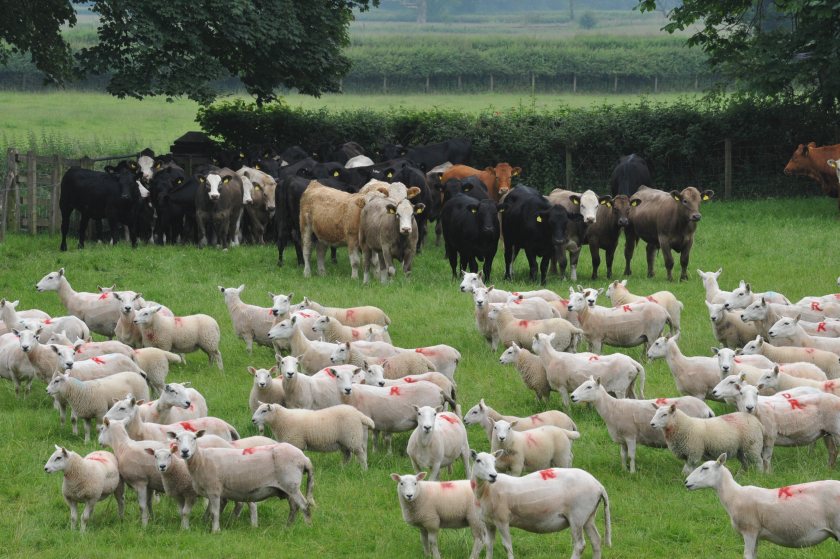
A new study of the greenhouse gas (GHG) emissions produced by red meat enterprises has shown that Welsh farms are below the benchmark for similar farms across the UK.
A total of 185 Welsh farms had a detailed carbon audit of their businesses undertaken by the Welsh government funded Farming Connect.
GHG emissions produced by the beef enterprises on these farms was 17% less than the benchmark figure for upland suckler spring calving cows published in the Farm Management Handbook 2022/23, which are representative of farms throughout the UK.
At 35.61 kg CO2e/kg deadweight (DW), they were also 5.7% less than the carbon benchmark figure for lowland suckler spring calving cows throughout the UK.
For sheep enterprises, the 29.89 kg CO2e/kg DW lamb figure was on average 9.3% lower than the benchmark figure for a hill ewe flock and 2.9% less than the benchmark for a crossbred ewe flock.
What the study did show was a big variation in the total emissions per kg product for each enterprise, but further analysis gave clear reasons in most cases for the significantly high and low values.
Farming Connect’s carbon specialist officer Non Williams, said: “It was evident that there was no correlation between farm size and total emissions per output."
A large proportion of the total emissions produced by beef and sheep farms was methane, deriving from enteric fermentation.
One farm carbon calculator was used for the study to provide consistency with the benchmark farms as this tool had also been utilised on the benchmark farms.
Other carbon calculating tools were used to complete a carbon audit for farms beyond the study sample, with the chosen tool decided by the individual farmer and consultant supporting the work.
The carbon audits provided bespoke information on each business’ whole farm GHG emissions, up to the point when the produce left the farm gate. Estimates of carbon sequestration were given too.
The farmers involved were provided with estimates of the carbon sequestered on their farms by soil, trees and hedges in their reports.
They also had recommendations of practical measures they could take to further reduce GHG production and enhance carbon sequestration levels.
These measures included improving herd and flock health, manure management and adopting reduced tillage approaches for reseeding.
“This will help Welsh farm businesses to improve efficiency as well as help work towards ‘net zero’ targets," said Dr Williams.
The new Farming Connect Knowledge Transfer programme, which started on 1 April 2023, will offers support to farm and land-based businesses in Wales.
